
Kathmandu officially the Kathmandu Metropolitan City, is the capital and the most populous city of Nepal with 845,767 inhabitants living in 105,649 households in 2021 and 2.9 million people in its urban agglomeration. It is located in the Kathmandu Valley, a large valley in the high plateaus in central Nepal, at an altitude of 1,400 metres. It is the second largest city proper in Himalayan hill region after Srinagar, and the largest Metropolitan region in the Himalayan hill region.

Nepal, officially the Federal Democratic Republic of Nepal, is a landlocked country in South Asia. It is mainly situated in the Himalayas, but also includes parts of the Indo-Gangetic Plain, bordering Tibet of China to the north, and India in the south, east, and west, while it is narrowly separated from Bangladesh by the Siliguri Corridor, and from Bhutan by the Indian state of Sikkim. Nepal has a diverse geography, including fertile plains, subalpine forested hills, and eight of the world's ten tallest mountains, including Mount Everest, the highest point on Earth. Nepal is a multi-ethnic, multi-lingual, multi-religious and multi-cultural state, with Nepali as the official language. Kathmandu is the nation's capital and the largest city.
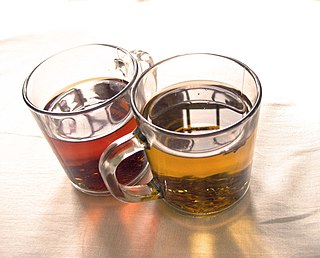
Nepali tea is a beverage made from the leaves of tea plants grown in Nepal. They are distinctive in appearance, aroma and taste, but are similar in many ways to tea produced in Darjeeling tea, perhaps because the eastern zones of Nepal have geography and topography similar to Darjeeling. Its relatively smaller production quantities mean that teas from Nepal are less well known than those from Darjeeling.

Gulmi District, a part of Lumbini Province, is one of the seventy-seven districts of Nepal. The district, with Tamghas as its headquarters, covers an area of 1,149 km2 (444 sq mi), had a population of 296,654 in 2001, 280,160 in 2011 and 268,597 in 2016.

Café Coffee Day (CCD) is an Indian multinational chain of coffeehouses headquartered in Bengaluru, Karnataka. It is a subsidiary of Coffee Day Enterprises Limited. Internationally, CCDs are present in Austria, Czech Republic, Malaysia, Nepal and Egypt.
Lipulekh is a Himalayan pass on the border between India's Uttarakhand state and the Tibet region of China, near their trijunction with Nepal. Nepal has ongoing claims to the southern side of the pass, called Kalapani territory, which is controlled by India. The pass is near the Chinese trading town of Taklakot (Purang) in Tibet and used since ancient times by traders, mendicants and pilgrims transiting between India and Tibet. It is also used by pilgrims to Kailas and Manasarovar.
Dhorpatan is a village in Nepal's Baglung District, 3,900 meters elevation in an east-west valley south of the Dhaulagiri mountain range in the Himalayas. It is the headquarters of Dhorpatan Hunting Reserve. There is a small community of indigenous Kham Magar people as well as Tibetan refugees.

Waling Municipality, the heart of Syangja, is a small valley covered with hills formed on 27 January 1997 by merging of the then three VDCs namely Waling, Dhanubase and Pekhubaaghkhor. It is a town and municipality in the western hilly region of Nepal. It is in the Aadhikhola valley in Syangja District, Gandaki Zone of Nepal. Waling will be the first municipality to have houses all coloured with pink and will be named as Pink City. Waling has grabbed an award for the best municipality of the country.

The International Coffee Organization (ICO) was set up in 1963 in London, under the auspices of the United Nations (UN) due to the economic importance of coffee. It administers the International Coffee Agreement (ICA), an important instrument for development cooperation.

In Nepal, the economy is dominated by agriculture. In the late 1980s, it was the livelihood for more than 90% of the population, although only approximately 20% of the total land area was cultivable, it accounted for, on average, about 60% of the GDP and approximately 75% of exports. Since the formulation of the Fifth Five-Year Plan (1975–80), agriculture has been the highest priority because economic growth was dependent on both increasing the productivity of existing crops and diversifying the agricultural base for use as industrial inputs.
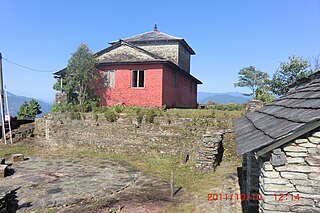
Kaskikot, commonly known as Kaski, is a Ward no. 24 of the Pokhara metropolitan city. It was earlier a part of the village development committee in Kaski District, a region in northern-central Nepal.

Tahoon is a village very development committee in Palpa District in the Lumbini Zone of southern Nepal. At the time of the 1991 Nepal census it had a population of 3776.
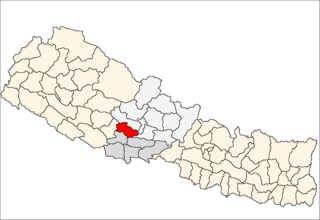
Thorga is a village in Gulmi district, Lumbini Zone, Nepal. It is mostly inhabited by Brahmins. The population of this village is around 1200 and literacy rate is about 35%.
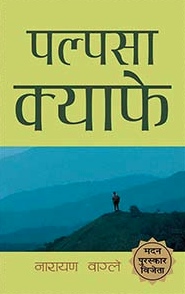
Palpasa Cafe is a novel by Nepali author Narayan Wagle. It tells the story of an artist, Drishya, during the height of the Nepalese Civil War. The novel is partly a love story of Drishya and the first generation American Nepali, Palpasa, who has returned to the land of her parents after 9/11. It is often called an anti-war novel, and describes the effects of the civil war on the Nepali countryside that Drishya travels to.
Narayan Wagle is a Nepali journalist and novelist. He was the editor of Kantipur Daily, one of Nepal's largest circulating newspapers, until 2008, and was the editor of Nagarik News until May 18, 2012. Wagle's novel Palpasa Cafe won the Madan Puraskar award.
Aapchaur is a hill village in Gulmi District, central Nepal, roughly 10 kilometres northeast of Tamghas and 30 kilometres southwest of Baglung. Overlooking a river valley, this village area was the cradle of the Nepalese coffee industry when it was first planted by a Hindu holy man using seeds from Burma in 1937.

International Coffee Day is an occasion that is used to promote and celebrate coffee as a beverage, with events now occurring in places around the world. The first official date was 1 October 2015, as agreed by then International Coffee Organization and was launched in Milan. This day is also used to promote fair trade coffee and to raise awareness for the plight of the coffee growers. On this day, many businesses offer free or discounted cups of coffee. Some businesses share coupons and special deals with their loyal followers via social networking. Some greeting card companies sell National Coffee Day greeting cards as well as free e-cards.

Indira Joshi is a Nepali female singer. Indira Joshi is a prominent female singer for Modern, Pop, Playback, as well as judge of an International Franchise reality show Nepal Idol. Indira Joshi has become famous after she released her debut album "Dance With Me" from which her first popular number "Rato Ghanghara" established her as a singer.

Malaysia–Nepal relations refers to bilateral foreign relations between Malaysia and Nepal. Malaysia has an embassy in Kathmandu, and Nepal has an embassy in Kuala Lumpur.
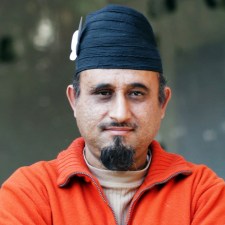
Ujwal Thapa was a Nepali youth leader and activist, entrepreneur, and social worker. He was the president of the Bibeksheel Nepali party.















